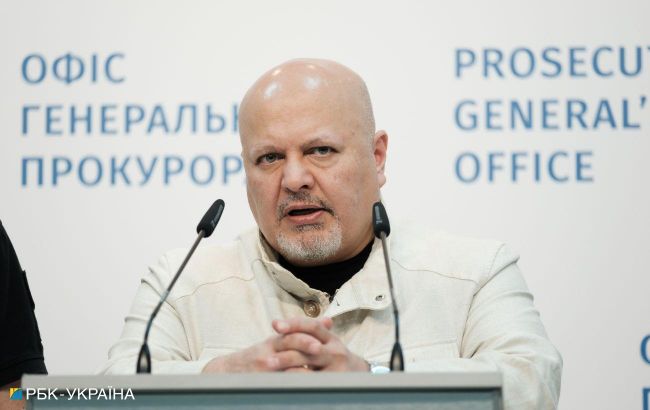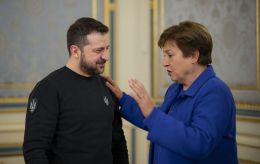ICC prosecutor responds to Mongolia's refusal to arrest Putin
 Photo: International Criminal Court prosecutor Karim Khan (Vitalii Nosach, RBC-Ukraine)
Photo: International Criminal Court prosecutor Karim Khan (Vitalii Nosach, RBC-Ukraine)
The Chief Prosecutor of the International Criminal Court (ICC), Karim Khan, responded to a question from RBC-Ukraine regarding Mongolia's refusal to arrest Russian dictator Vladimir Putin during his official visit to the country. He emphasized that the Rome Statute includes a special procedure for handling such cases.
"It is a matter of public record that President Putin traveled to Mongolia. There is a process in the Rome Statute to deal with such cases when a state is said to have not cooperated with the court. These are controlled by the judges. And I won't comment further, and the judges, of course, are seized of it. We are, as a court, aware of what took place," Karim Khan said.
He explained that typically, in cases like the refusal to execute an arrest warrant, a general meeting of all member states (those that are signatories to the Rome Statute) is held, and a decision is made accordingly.
Ukraine's Prosecutor General Andriy Kostin also made a statement. He said that Ukraine is working with its partners to ensure that the country that ignored the ICC's demand "feels the consequences."
Putin’s visit to Mongolia
On September 2, the Russian leader flew to Mongolia on an invitation from the country's president, Ukhnaagiin Khurelsukh. This visit marked Vladimir Putin's first trip to a country that has ratified the Rome Statute. Accordingly, Mongolia, being a signatory, was obligated to arrest Putin, but it did not. The Mongolian government explained its refusal by citing the country’s dependence on Russian energy resources.
The Ukrainian side has stated that Mongolia will face consequences for refusing to arrest the Russian dictator.
Ukrainian President Volodymyr Zelenskyy also commented on Mongolia’s refusal to arrest Putin, saying that in Mongolia, "Mongolia shows more respect for the murderer than for international law ."

